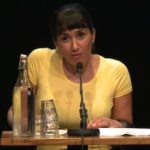ABSTRACT
A decade after the 2011–2013 Syrian uprising, many had forgotten the country’s revolutionary struggle. A year later, Bashar Al-Assad was ousted just as suddenly as the 2011 revolts had arisen. In this article, Miriyam Aouragh researches how revolutionary events are remembered and mediated through critical digital ethnography. Examining in a unique case study, the article demonstrates how different features of digital visual media were produced by the art collective Al Sha’b Al Suri Aref Tarikh (ASSAT) (“Syrian people know their way”). Through this empirical study it discovered how the visuals simultaneously correspond to the different stages in Syria’s revolutionary experiences. Doing so, the article presents ASSAT as a unique phenomenon that visually documented Syria’s uprising. ASSAT’s visual expressions provide a temporal appraisal of the different junctions of revolutionary experiences, and demonstrates that chronicling the extraordinary phases of resilience, has also shaped their own lives. Their engagement set in motion future political effects, even when they were unable to salvage a revolutionary project in their own present.

Dr. Miriyam Aouragh is a Reader at CAMRI. She has studied the implications of the internet as it was first introduced (“Web 1.0”) in Palestine (PhD, University of Amsterdam, 2000-2008) to understand in particular the significance of techno-social evolutions by analysing how a new technology coincided with the outbreak of a mass uprising (Second Intifada 2000-2005). She then focused on the political role of new internet developments, such as blogging and social networking (“Web 2.0”) for grassroots activism in Lebanon and Palestine (Postdoc, Oxford Internet Institute, 2009-2011). After earning a Leverhulme Early Career (UoW, 2013-2016) funding Miriyam set-up a critical research project in which she relates theory with online analysis through a focus on the complex revolutionary dynamics in the Arab world. In these new techno-social relations, marked by revolution and counter-revolution, she researched and wrote about the paradoxical context of online-revolution and cyber-imperialism. During fieldwork in Palestine, Jordan Lebanon and Morocco, she combined participant observation and interviews with media analyses and throughout her academic projects and collaborations in general, she relates online studies and observations with ethnographic (offline) methodologies, and theoretical focus on critical race, political-economy and infrastructures. Miriyam theorizes how the contradictions of capitalism shape the modes and meanings of resistance in the era of revolution and digital transformations. Her work is published in several books and journals (see Publications) including her own monograph Palestine Online (IB Tauris 2011), forthcoming book on Cyber Imperialism (2021) and monograph about the (r)evolutionary dynamics of protest in Morocco (2022). Miriyam teaching about internet, (global) media, (Middle East/race) politics and anthropology. She welcomes and supervises PhD students.












